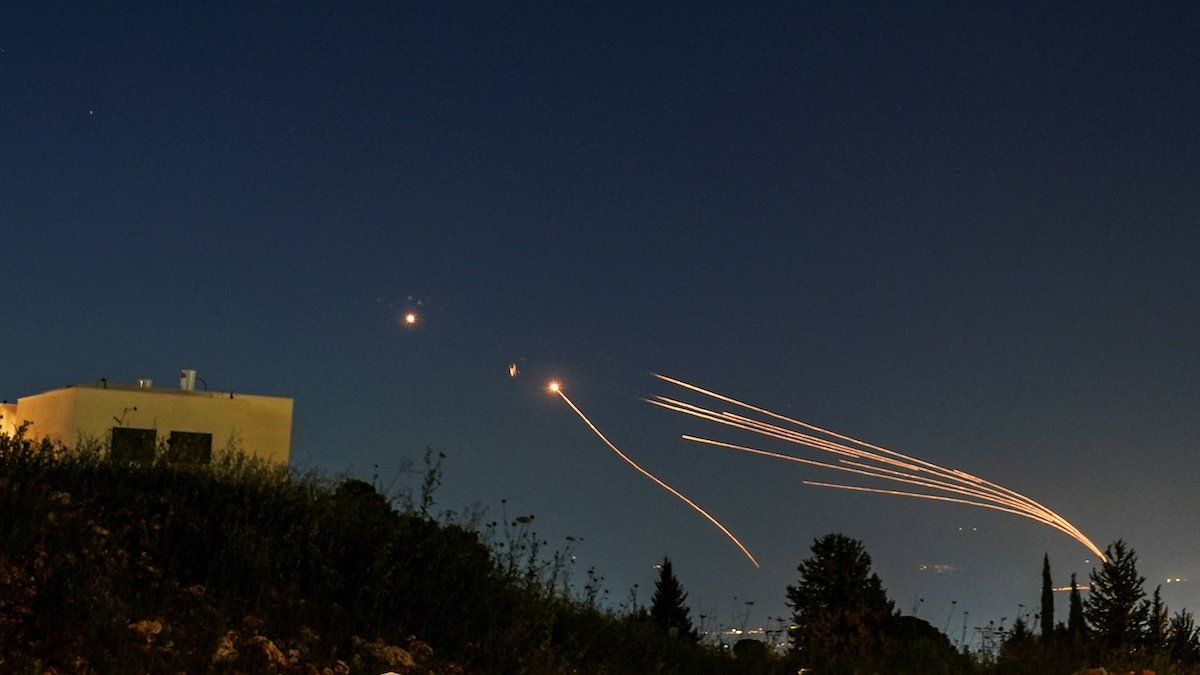On Saturday, Iran launched roughly 300 drones and missiles at Israel in retaliation for Israel’s April 1 bombing of the Iranian consulate in Syria. Some 99% of Iranian projectiles were destroyed by a combination of Israel’s Iron Dome defense system, US firepower, and assistance from Britain, Germany, and reportedly Jordan and Saudi Arabia. Israel suffered minimal damage and no casualties.
The question now is what comes next, for the region, the Israel-Hamas war, Israeli Prime Minister Benjamin Netanyahu, and the world’s great powers?
The region
The slow-motion nature of the attack, which gave Israel and its allies hours to prepare, led some analysts to call it more symbolic than serious. However, it allowed Iran to gauge Israel’s capabilities, see who would come to the Jewish state’s aid, and learn how other regional powers and groups would respond to an Iranian barrage.
Both Jordan and Saudi Arabia came to Israel’s defense, according to Israeli military intelligence. The two monarchies both have close ties to the US, Jordan shares a border with Israel, and there is no love lost between Iran’s Shi’a fundamentalist government and the Saudi Sunni monarchy and religious authorities.
But according to Masoud Mostajabi, deputy director of the Middle East Programs at the Atlantic Council, “… if tonight's attacks escalate into a wider Israel-Iran conflict, regional actors perceived as defenders of Israel may find themselves targeted and dragged into the regional conflagration.”
What might Israel do?
US President Joe Biden wants Bibi to “take the win” and not retaliate, but Israel could use the attack as a reason to bomb Iran’s nuclear program or other Iranian military installations.
Netanyahu’s cabinet is divided. Hardliners are calling for a tough response, with National Security Minister Itamar Ben Gvir saying Israel should “go crazy.” Netanyahu rival Benny Gantz said Israel will “exact a price from Iran in a way and time that suits us.” And Defense Minister Yoav Gallant says Israel has the opportunity to form a strategic alliance with nations, including the United States and Germany.
According to Hebrew-language media reports, the security cabinet has authorized the war cabinet – whose only voting members are Gantz, Netanyahu, and Gallant – to ultimately make the decision. A possible clue to that response came Sunday as Gantz declared that Israel must strengthen the “strategic alliance and the regional cooperation” that allowed it to overcome Iran’s attack.
“Israel is currently weighing options. Strikes on Iran directly are possible, but it appears that the war cabinet is divided over how to respond,” says Eurasia Group analyst Greg Brew. “Bombing Iran in response to Saturday's attack would likely escalate the confrontation and compel Iran to attack again – this time with less warning and stage-managing.”
The Israel-Hamas War and Bibi’s future
Iran has warned that attacks by its allies won’t stop until the war in Gaza ends – but that ending is still nowhere in sight. On Sunday, Hamas rejected the latest proposal for a deal presented a week ago by mediators Qatar, Egypt, and the United States.
According to Eurasia Group and GZERO Media President Ian Bremmer, the Iranian attack is “going to be a big distraction away from the war in Gaza. [This] doesn't mean that Israel suddenly loses its isolation or wins the PR war globally,” he says, “And there's also less pressure for Netanyahu to be forced out domestically in the near future.”
Great powers unite
The US made it clear that it wants no further escalation. Biden also told Netanyahu that the US would not participate in any offensive operations against Iran.
The G7 issued a statement affirming their support for Israel and condemning Iran, saying that an uncontrollable regional escalation “must be avoided.” They demanded that Iran and its proxies cease their attacks and “stand ready to take further measures now and in response to further destabilizing initiatives.”
Iran said a “new equation” in its adversarial relationship with Israel had been opened, and warned of a “much bigger” assault on the country should Netanyahu retaliate to Saturday’s assault.
While Bremmer does not see this leading to World War III, he says the “potential that this war expands and eventually does drag in the United States and Iran more directly is also going up. ”


















